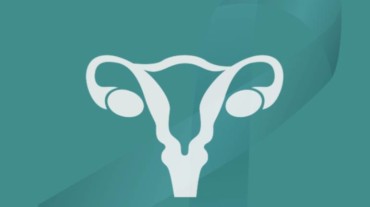
Premature ovarian failure (POF) is a rare condition in which the ovaries stop working due to low levels of estrogen and stop releasing eggs before a woman reaches her 40s. Also known as premature ovarian insufficiency (POI), it is often confused with premature menopause, but both conditions are different. Women suffering from premature ovarian failure get menstrual cycles occasionally, and can even get pregnant. On the contrary, women suffering from premature menopause do not get menstrual periods and cannot get pregnant. An individual can suffer from the condition by birth or develop it during their teenage years
* Hot flashes
* Difficulty in getting pregnant
* Irregular or skipped periods
* Low sex drive
* Vaginal dryness
* Difficulty in concentrating
* Irritation
* Amenorrhea
* Few or no signs of puberty among teenagers

It can happen as a result of various health conditions, genetic issues, as well as sleep problems. Here’s what they are:
* Autoimmune disorders like diabetes and thyroid
* Infections that can cause damage to ovaries
* Chromosome changes and genetic disorders like Turner syndrome and Fragile X syndrome
* Toxins due to radiation therapy and chemotherapy
* Surgery of ovaries
* Heart palpitations
* Frequent UTIs
* Difficulty in sleeping
Family history is one of the biggest reasons that could cause this condition. If you have a mother or a sister with it, you are more likely to develop the condition. Having autoimmune diseases or certain viral infections can be another risk factor. Premature ovarian failure can also occur if you are undergoing treatment for cancer that involves chemotherapy or radiation therapy.
It can give rise to certain health complications like:
1. Fertility issues, including problems in conception
2. As estrogen levels are low in women with premature ovarian failure, there is a risk of developing osteoporosis.
3. The fertility issues and hormonal imbalance due to this makes women more prone to mental health issues like depression and anxiety.

Doctors suggest that women must go for hormone replacement therapy until they reach the average age of menopause. This also reduces the symptoms of the condition and the risk of developing osteoporosis which weakens the bones.
Treating the underlying cause will also reduce its effects. However, the ovaries will still produce less or no eggs at all. Women who want to conceive should consult their fertility specialist to discuss conception options with them.
1. Women should take supplements like calcium and vitamin D to keep their bones strong.
2. Strengthening the bones by weight-bearing exercises can also prevent the weakening of bones.
3. Avoid smoking and get vaccinated for diseases like mumps to reduce damage to the ovaries.
Select Topics of your interest and let us customize your feed.
PERSONALISE NOW
Inability to conceive with this condition can cause significant distress among women. Therefore, women should take counseling sessions to cope with the grief. Getting the required emotional support and meeting people suffering from similar conditions can also help.
Women suffering from this condition do not ovulate every month. This means that their ovaries do not release an egg every month. Therefore, this drastically reduces their chances of conception.
But there is no need to get discouraged. Many women with this have conceived through in vitro Fertilisation (IVF) with donor eggs. This method is appropriate for women who are unable to conceive with their own eggs. The egg donors are young and healthy women, who usually have given birth before.
They will undergo evaluations for their physical and psychological health before the procedure. There are strict guidelines given by the ICMR (Indian Council of Medical Research). An egg donor is recruited into the program only after all appropriate tests are done
You can get more information about the procedure from your fertility specialist, and they can guide you on the steps to be taken.
Get Latest Updates on Preventive Care, Family Care, Reproductive Care, Self Care